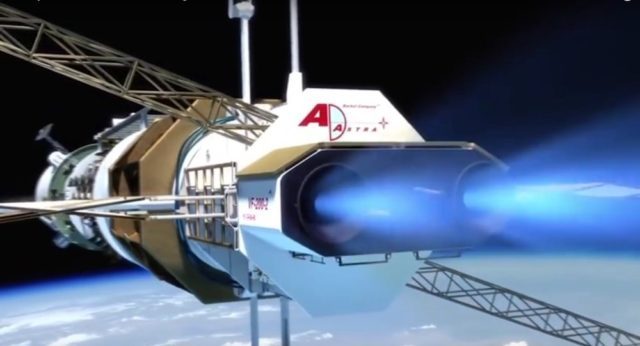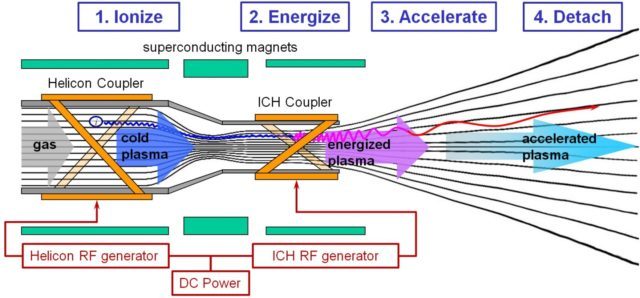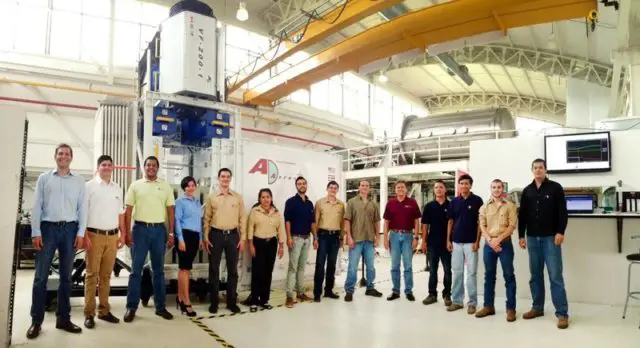A US$ 1.5 million funding agreement has been signed between Aethera Technologies Limited of Halifax, Nova Scotia, and the Canadian Space Agency (CSA) for the development of advanced high-power radiofrequency (RF) power processing units for Ad Astra’s VASIMR® engine. The agreement, announced by the CSA on May 25th, 2018, adds a major boost to Aethera’s RF power processing unit (RF-PPU) development program. The critical and innovative technology outcomes from this program support on the ongoing partnership between Ad Astra and Aethera to develop advanced, high-power, in-space electric propulsion.

“The CSA’s funding provides a measure of Canada’s long-term view of the importance of high power electric propulsion in humanity’s gradual evolution beyond low Earth orbit (LEO) and the unique and ongoing contribution of that nation’s technology base to the exploration of space”, said Dr. Franklin Ramón Chang Díaz, Costa Rican NASA Astronaut, Founder, COB, and CEO of Ad-Astra Rocket Company. “With Canada’s involvement in the project, the VASIMR® engine takes on a stronger international flavor”.
A critical element of the VASIMR engine, the RF- PPUs, is being supplied by Aethera to support the upcoming 100-hour continuous high-power firing test of the VASIMR® VX-200SSTM engine. The test is scheduled for the 4th quarter of 2018 under NASA’s NextSTEP partnership with Ad Astra. At the completion of the 100-hr test, all systems of the VASIMR® engine will be at or above Technology Readiness Level (TRL) 5, the step just prior to a space flight test.
“We are focused on developing state of the art RF-PPUs with extremely high energy conversion efficiencies and mass density which will enhance Ad Astra’s VX-200SSTM VASIMR® engine”, stated Tim Hardy, CTO at Aethera. “The team is extremely excited to be working on this project”, he added.
The most advanced VASIMR® engine is the VX-200SSTM prototype, approaching technology readiness level 5 and currently undergoing testing at Ad Astra’s Texas facility near Houston. In late 2017, the company successfully accumulated 100 hours of non-continuous high-power tests and is now upgrading the rocket for continuous firing operations. Despite a 1-month disruption in operations due to Hurricane Harvey, the company has completed all NASA contract milestones to date and remains on the budget for the completion of the program.
The final goal is to demonstrate a 100-hour continuous firing of the VX-200SSTM at a power level of 100 kilowatts. The company marches towards this goal on schedule, along with a path of interim milestones focusing on the rocket’s new active thermal management system, designed to enable it to operate at full power indefinitely.
“Ad Astra’s VASIMR® technology has the potential to open dramatic new opportunities in the commercialization of space and we are extremely pleased to be a partner with Ad-Astra and receive support from the CSA in developing this world-class technology in Nova Scotia”, expressed Aethera’s President, Kirk Zwicker.
ABOUT THE TECHNOLOGY
Short for Variable Specific Impulse Magnetoplasma Rocket, VASIMR® works with plasma, an electrically charged gas that can be heated to extreme temperatures and controlled and guided by strong magnetic fields, which also provide insulation.

Plasma rockets, such as VASIMR®, have extremely low-fuel consumption and much higher performance as compared with conventional chemical propulsion or other electric rockets. They will provide a major economic and operational advantage in space commerce, including satellite deployment, re-boost services, refurbishment and end-of-life disposal. In the longer term, with an appropriate nuclear-electric power source, VASIMR® would provide much faster and safer human and robotic transportation in deep-space where solar power is insufficient.
ABOUT AD-ASTRA
A United States Delaware corporation established in 2005, Ad Astra Rocket Company is the developer of the VASIMR® engine, an advanced plasma propulsion system for the emerging in-space transportation market. Ad Astra also owns and operates supporting R&D subsidiaries in the United States and Costa Rica. The company also develops earthbound high technology applications in renewable energy and hydrogen-based fuel-cell electric transportation, as well as advanced manufacturing and applied physics. Ad Astra has its main laboratory and corporate headquarters at 141 W. Bay Area Boulevard in Webster, Texas, USA, about 3 miles from the NASA Johnson Space Center.

ABOUT AETHERA
Located in Halifax, Nova Scotia, Aethera Technologies Limited develops innovative technology and provides related services for its clients with a focus in the fields of radio frequency power, communications, and dielectric heating. Aethera is committed to transforming ideas into a competitive advantage for our clients.
ABOUT CSA’s SPACE TECHNOLOGY DEVELOPMENT PROGRAM
The CSA’s Space Technology Development Program (STDP) supports innovation for the growth of the Canadian space industry and to reduce technological unknowns. Contracts are issued to Canadian organizations for the development of technologies to support future needs of the Canadian Space Program, while non-repayable contributions are awarded to Canadian organizations to support the development of innovative technologies with strong commercial potential.
